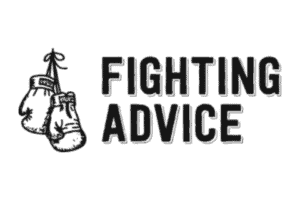Wrestling is a sport that has existed for a very long time and even dates back to the prehistoric period. It was primarily used to defend yourself when you had no weapon. During the ancient Greek period, however, it started gaining popularity.
That’s when we saw the rise in wrestling competitions and shows, and it was even looked at as a fighting discipline that you could learn properly from a coach. When it comes to wrestling, people always ask the question of weight in wrestling.
So does the weight matter in wrestling? The answer may vary depending on how you look at it. The weight may matter less if you are a professional wrestler with their weight division; there, you wrestle with the same weight as the opponent. But if you were to go against someone, not in your weight class, the weight would be significant.
To better understand how important weight is, it will be important to check different aspects of this sport.
Does Weight Matter? Weight Divisions, Real World Implementations, Psychological Effects
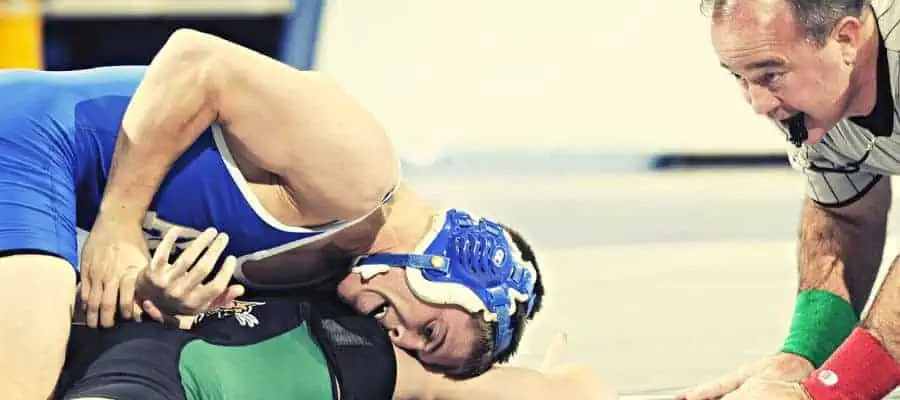
If you have ever competed in combat sports, you will know that keeping track of your eight and getting into that desired weight class is very important. You will often see many athletes cum massive weight to have an advantage over their opponents.
Maybe you are asking yourself. What difference does it make if both athletes have the same weight? There is an explanation behind it. Even if you are the same weight as your opponent, it does not mean you have the same muscle mass.
That’s why many athletes try to cut as much as they can. They could compete with their “healthy weight,” but they will face an opponent that went on a cut from a much larger weight to get there. It is not always a healthy thing to do, but it usually gets them that victory.
Healthy weight is your average body weight when you are not preparing for a competition. That means you will have that extra fat on you which is healthy for your joints and other bodily functions. However, that extra fat will slow you down during your fight.
Many athletes have their “off” and “on” seasons. During their “off” season, they put on extra weight and fat to build muscle. On the other hand, during their “on” season, they are cutting that weight and fat down while trying to maintain that muscle they got during the “off” season.
However, the body cannot withstand such low body fat. So that is being done under professional circumstances where you will have your team monitor you, your diet, and your training. That means you have to have some time off and get a bit bulkier so your body can recover.
When competing in wrestling matches, weight does not play a huge role. Instead, it’s your muscle mass that does. If you have a larger muscle mass than your opponent of the same weight, you have an advantage over them.
Real World Implementation
It is a whole different story regarding self-defense or encounters on the street. If you are ever attacked by someone smaller than you in size, you will almost always have an advantage over them.
Even if you are not a good wrestling athlete, your opponent will have a harder time pushing you around if you are heavier than them. That doesn’t mean that you should look like a sumo wrestler because you will not be able to move efficiently.
You will have better control, whether just doing weightlifting or even some martial arts. And also, you will have more strength than the average person. It is always good to train your body in any possible way.
You often hear someone say, “I’m not going against him; look how big he is.” And that is completely logical thinking. Just imagine going up against a person that is twice as big as you. Even if they don’t know any martial art, they simply have the advantage of being bigger and less fragile.
The guy could sit on top of you, and you would be able to do a thing.
Psychological Effects
As we all know, mainly done professionally, physical activity can be pretty difficult for the mind and body. You won’t see many professional athletes having a job besides their sport.
And if you ever tried to go through just a season of training like the one, you would know why. Many people would argue that training is the hardest part, but that is not true, especially f you have been doing some sport for some time.
It can be hard at first until your body adapts to it, but diet and weight control become the most difficult part. Some athletes have it easier than others to maintain their weight, cut, or even bulge.
For example, bodybuilding is very strict when it comes to the diet of a professional competitor. You won’t see them complaining about the training as much as it does not include compound movements. You do not have to move your entire body but rather isolate the muscles to grow them.
By doing that, your body burns fewer calories than it would if you were to train in some more athletic sport where you would have to use your entire body the whole time you train and compete. That’s why being on a diet when you are a martial artist can be adamant.
You will have to do strength training and movement exercises even if you are doing your cut, which can be highly tiring both for the body and the mind. Many athletes feel like giving up during their off-season because they will be in a caloric deficit while they train.
You will lose strength and some muscle mass in your bulk, which can demoralize many athletes. You will not have enough mental strength to even think about other things except your training because it will drain you completely.
That’s why professional athletes are unable to have regular jobs while competing. Of course, if you are just starting, you will be able to do that because you will not put in so many hours. And also will not have as many restrictions as someone who competes in the UFC, ADCC, or any other professional organization.
Does Cutting Weight Stunt Growth?
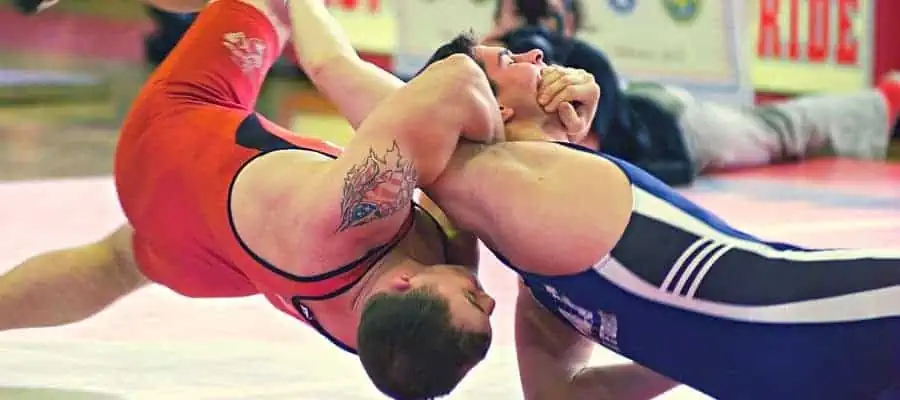
This is a common question asked by athletes and parents of younger athletes that are worried about their health. The truth is that it does have a chance of occurring. However, that mostly happens to more youthful people still in their development phase.
Most athletes deprive themselves of food and nutritional values because they think it will make them leaner and cut down faster. While that is true, and you will lose weight more quickly, it is much more dangerous. However, there is a way to avoid that.
Your diet must be balanced, and you must eat many things to regulate your hormones and keep your body running smoothly. Certain foods keep your joints in order, and certain foods keep your muscles from cramping, so you would have to eat many things, even if they are a bit denser in calories than you want.
The best thing you can do is consult your coach regarding your diet so he can write down a proper nutritional plan that will support your growth while practicing this sport. Another thing you can do is stay away from more professional competitions requiring you to make drastic changes in your diet and training while you are a bit older.
How Long Does a Cut Last?
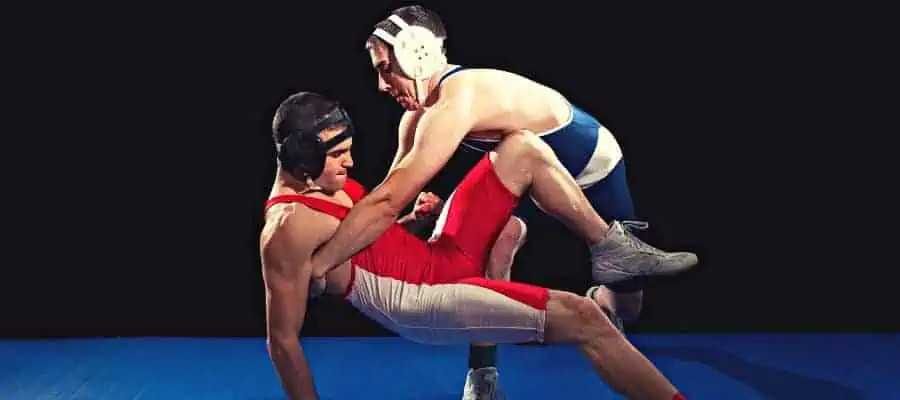
The duration of the cutting season depends on how much you want to cut. Usually, it can last between 2 and 4 months. You may think that that is too long, but it is not. You want to avoid making drastic changes that will make you lose a ton of weight because you will not be able to perform well.
Not just performing but also you will lose a lot of muscle in the process. And you want to keep as much as you can. Cutting is usually done slowly with a small caloric deficit of up to 500 cal. per day. That is enough to lose weight over time but maintain their body correctly.
When going on a cut, consult your trainer or your team, or even a nutrition professional, and explain to them what your goal is so that they can make the right diet plan for you. You can always experiment yourself, but if your goal is to compete and win, your best bet is to ask someone who has done that already.
How Long Can You Bulk For?

Bulking is a lot different thing than cutting. While you can’t cut for a very long period because your body will feel weak, you can bulk for a very long time. Now that is also not recommended because you do not want to get fat and lose your mobility.
Now there are two types of it. You have a clean bulk and a dirty bulk. A clean bulk is when you eat healthy food items. Still, you try to have a more significant caloric intake than you would need to maintain your current weight. However, some people can bulk for several months and even years if it is a slow and controlled bulk.
Over time you will start gaining mass and, with it, some fat, but if you have a proper training plan, you will gain more muscle. A dirty bulk is when you mostly eat junk food to put on that mass for a shorter period.
With that kind of bulk, you are more likely to gain more fat than muscle. You will get bigger faster with it, but you will have a more significant fat percentage. Now the type of bulk that you will choose will ultimately depend on your goal. Most athletes will choose the clean bulk because once you start cutting, it will be much easier to take off that fat than if you decided to do the dirty bulk.
Will I Lose Muscle While Wrestling?
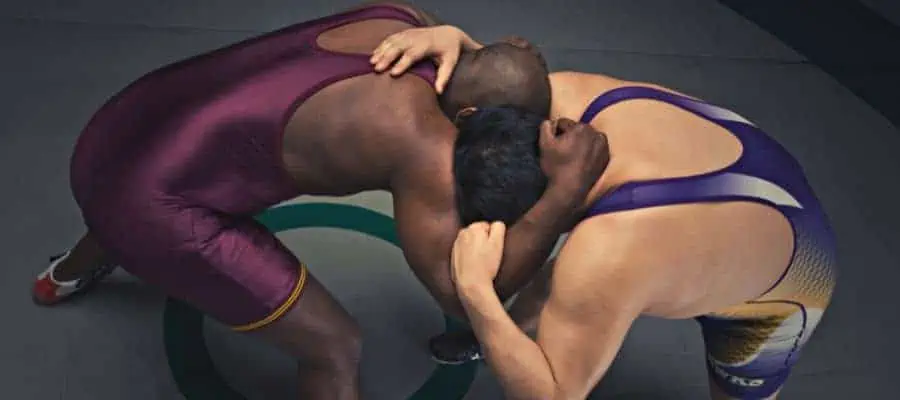
The short and pretty comforting answer is no, you won’t. If anything, you will gain much more muscle than before. That is because you will use your whole body, and it will get developed pretty quickly. As you have probably seen already, wrestlers are pretty jacked.
It is not easy to move another person around and throw them around. You will need a lot of strength to do that, and by regularly attending training sessions, you will gain more power and muscle mass.
To gain even more muscles faster, you should include a good diet. Without a good diet, you will still see your strength increase. However, it will be a lot slower and eventually hit a plateau that you can break once your diet is checked.
Conclusion
Weight is an important thing to look after in this sport, as well as many others, no matter if they are combat sports or not. We talked about many things related to weight in wrestling. Weight in wrestling is important because you will compete under certain weight classes. If you want to be more dominant, you will choose a weight class that you must cut down, as many other wrestlers and mixed martial artists have done before and still do.
Controlling your weight is also really important regarding your fighting ability. If you gain too much of it, you will be slower and lose mobility. If you lose too much of it on the hand, you will be weaker, and your joints, bones, and even muscles will be much more fragile, leading to many injuries you do not want to have.
Suppose your goal is to compete and win. In that case, you should listen to your team and coaches more experienced than you and ask them for guidance and help instead of trying to experiment yourself. If you do not plan to compete but rather a fun train, you have more freedom to create your diet and experiment.
Recent Posts
What is Manachai's Fighting Style? Unveiling Muay Thai Mastery
Manachai, a celebrated figure in the Muay Thai world, has captivated audiences with his exemplary martial prowess. Hailing from the heartlands of Thailand, his name is synonymous with the art of...
What Was Chamuekpet Hapalang's Fighting Style? Unveiling Techniques
Chamuekpet Hapalang was a renowned figure in the world of Muay Thai (record 200-48-2), embodying a fusion of Muay Bouk and Muay Khao styles. Originating from Thailand, the art of Muay Thai is known...
